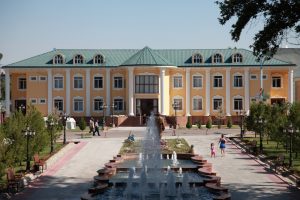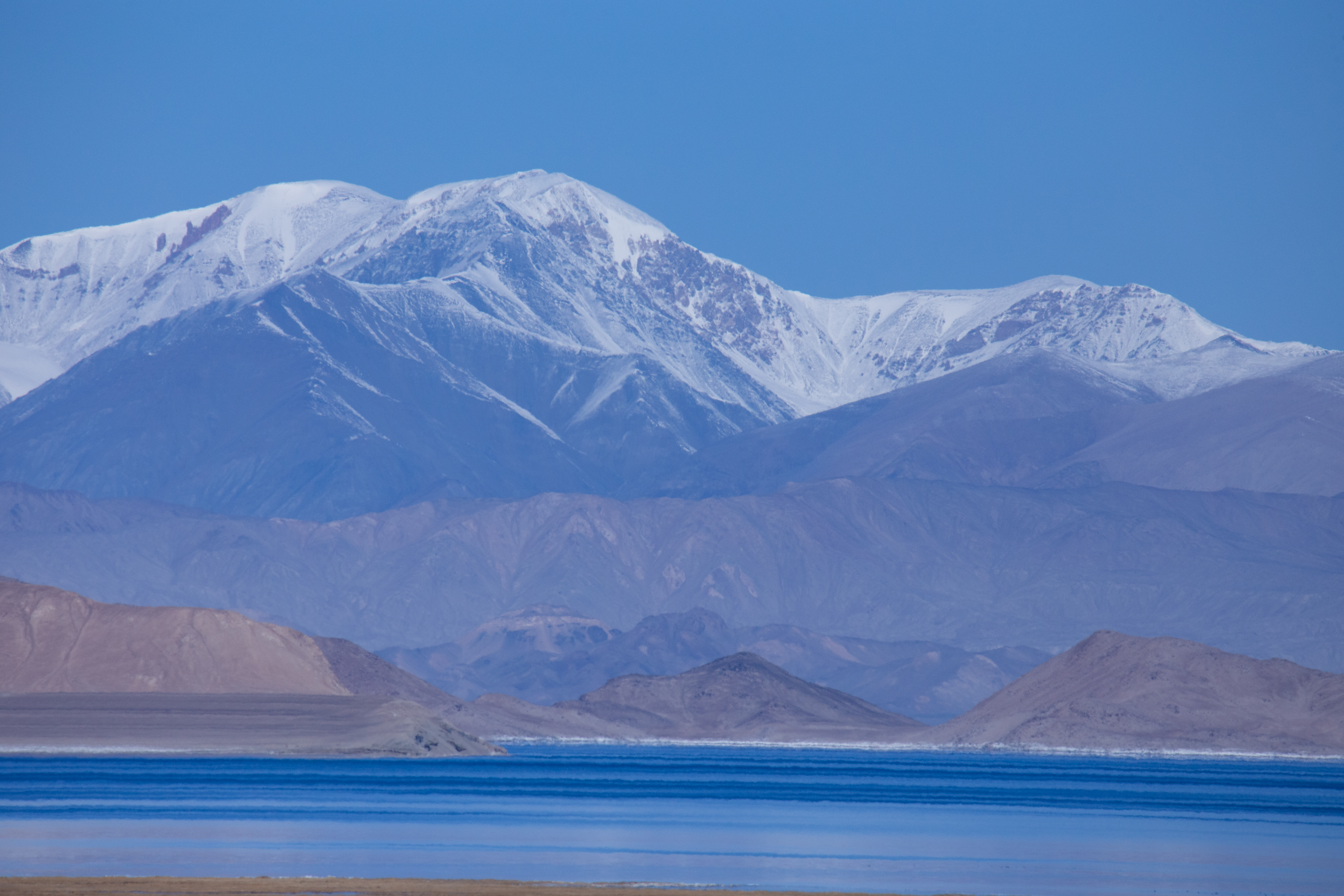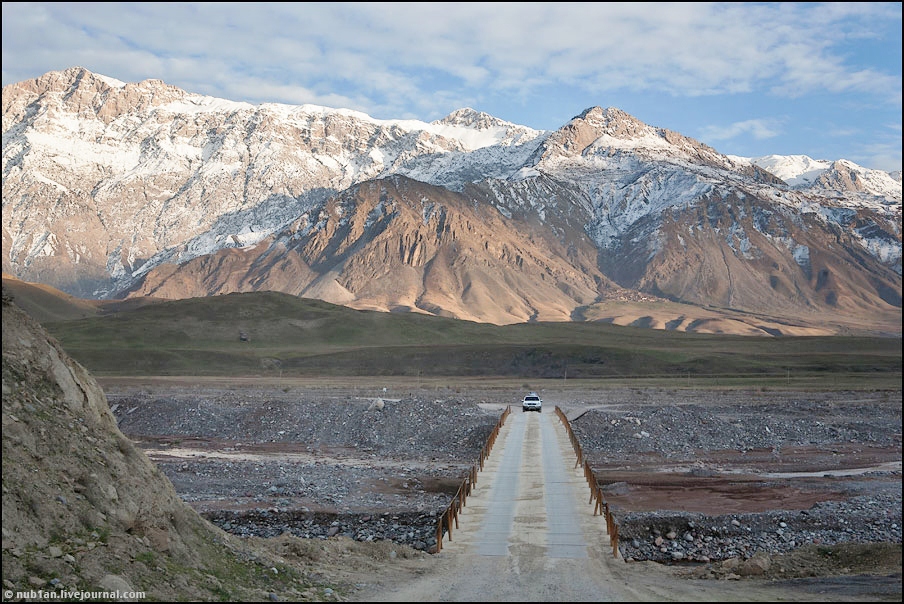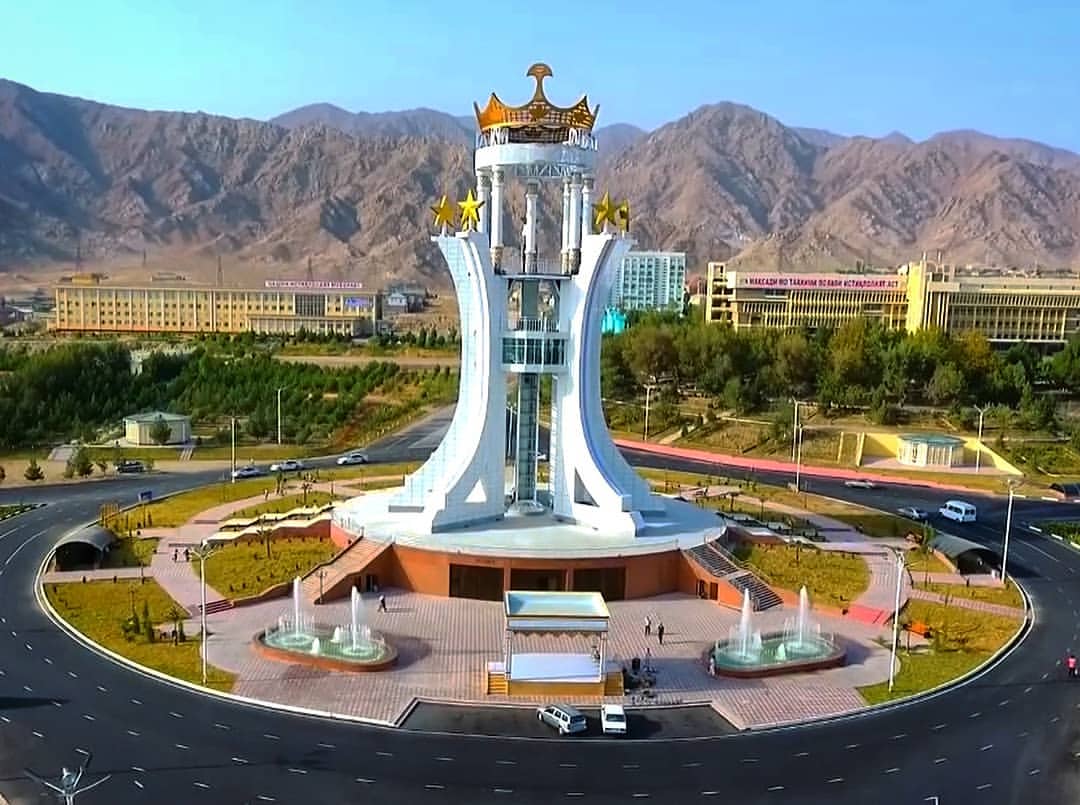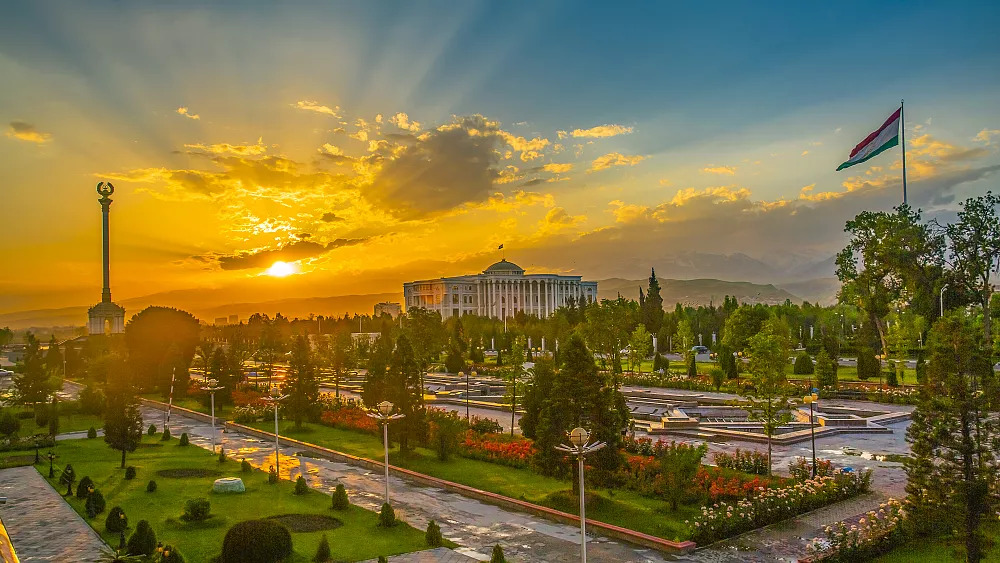The ancient town of Karon town is located at a distance of 8.5 km from the centre of Darwaz district, and above from the village of Ruzvai at an altitude of 1700 meters above sea level on the mountain Zogik. Karon is a naturally inaccessible and protected area. Due to its size and grandeur, scholars speculate that in the past it was a royal city and a place of nobility, where the king, his relatives, troops, demons and servants lived.
Historical sources mention the existence of the town of Karon city in medieval times. However, this site was not known as a historical and cultural heritage, and tourist attraction until recently. In 2012, Tajik and Russian archaeologists have unearthed fragments of a five-story fire temple, water and wind temples, a windmill, a fragment of the book (presumably Zoroastrian sacred book of Avesta) there.

Archaeology of Karon
Archaeologists had divided the city into four sections and proposed the existence of a playground, a fire tower, a water temple and public buildings, and a royal dizh (palace) in its flat section. Each of these parts of the building embodies the rich art and ancient architectural tradition of Darwaz. The architectural design of the ruins of Karon is similar to some of the buildings in the Central Asian region. There were family quarters buildings in the second section, in the north, in the area of the lower Verchi. There was a burial ground, a place for carcasses in the upper Verchi. The remains of three thrones made of large stones for the burial of men, women and infants exist there.

The dizh (royal palace) is situated at an altitude of 300 m above the water level in the centre. The fourth section is called Dashti Manora and is located in the southern part 300 m below the Dizh. The tower, named Panjmanor are connected to the central tower. As the Panjmanor (five-tower) symbolically stood on a cross-shaped platform, the cross was a symbol of sun and fire. Such conclusions about Panjmanor attribute it to the Zoroastrian building. The coin of Kushanian King Kanishka III and fragments of vessels probably dating back to the time of the Kushans were found on the eastern tower. A medium-sized copper coin from the 5th-7th centuries BC was found on the south wall of the central tower. A fire altar with a hollow in the middle exists along with the tower. The magnificent building, and unique building of the Temple of Water, is located sixty-five meters far from Panjmanor. Its’ walls were probably made of broken volcanic rocks with wood and clay. There is an altar on the floor, and a stone tablet is placed on the top. This is considered the oldest stone tablet in the surrounding area. According to the local and native archaeologists, the Old Fortress playground meets all the standards of Chavgonbozi, the national game, (the ancient play of equestrian polo) among the Tajik people. Archaeologists have also discovered a remain of an observatory in the town of Karon.
Gallery
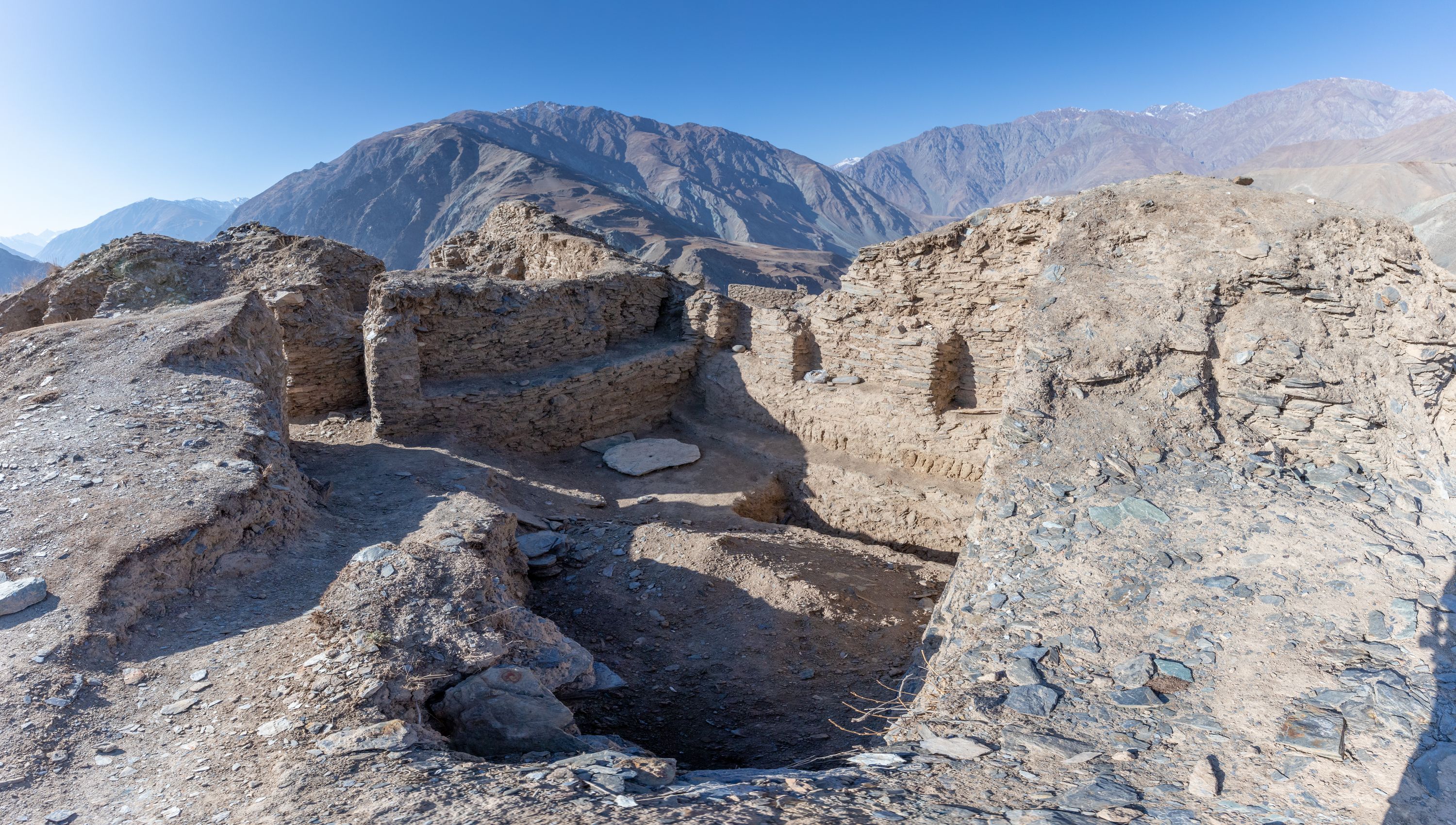



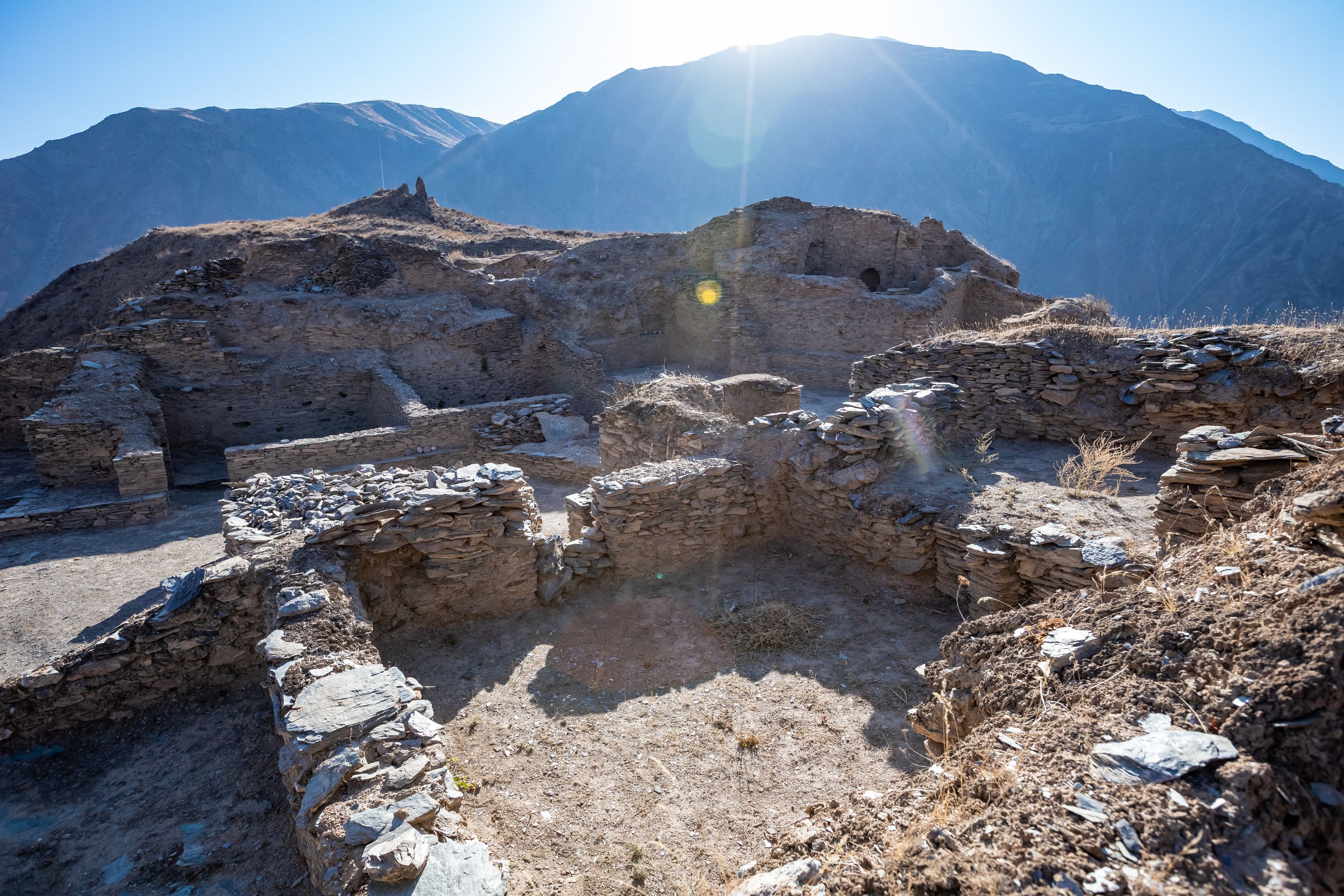

Travelling to Karon
The ancient town of Karon can be easily reached from the flourishing town of Qalaikhumb. From the centre of Darwaz visitors can head east towards Khorog, wherein 5 km away they can find a small wooden sign directing them to the hills. It is on this hill that the recently discovered and the advertised town of Karon is situated. Visitors travelling to Darwoz from Khorog can reach Karon city after driving for 6 hours on the most damaged sections of the Pamir Highway.














